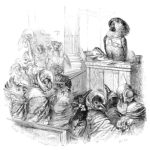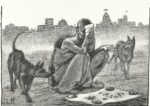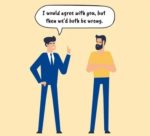“Warm Up, 3/11.”
- How much total time did you spend on h/w last night? (All subjects.)
- What did you do yesterday between school and bed that wasn’t eating, homework, or travel time? List everything you can remember.
- What time did you go to bed, lights out?
“Compound Sentences, 3/11.”
- (3) Give an example of each of the three ways two independent clauses can be connected to form a compound sentence. (Not the whole sentence; just the connector.)
Write the subject and verb of each independent clause with the connector in between the pairs.
- It seemed essential to eat broccoli, but I watched the llamas instead.
- Llamas often built rockets in secret, for their group was feared by all other species.
- Gary thought his first llamas were awkward; therefore, he worked hard to improve his creation.
- A sudden population explosion made food scarce, so many ordinary llamas were suffering.
- The treasure was divided equally amongst the llamas; they also shared the beef jerky.
“Vocab, 3/11.” Each word once for the pictures. No hints. OK to collaborate.
convivial, prolific, bona fide, deduce, covet, loathe, pariah, condescending, muse, eloquent, obliged




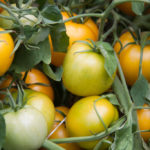



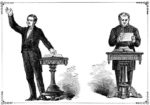


12. The root of this word meant “to waste time.”_____
13. The root of this word meant “to bind.”_____
BOB. Read 213. Practice: Go to Paragraph 33 and find the line that begins, “Sweat poured…”
Fill in the first empty card on p213.
Read Vocab on 214. Check the boxes of the words you think you now.
“Why are names so important?” The alternative title of the story was “The Naming of Names”
Is our perception of something influenced by its name? (Hint: It’s why we have ______(s).)
- Chilean Sea Bass — Patagonian toothfish or Antarctic toothfish
- Gizzard Fish — Lake Whitefish
- Kiwi — Chinese Gooseberry
What about people’s names?
In 1948, two professors at Harvard University published a study of thirty-three hundred men who had recently graduated, looking at whether their names had any bearing on their academic performance. The men with unusual names, the study found, were more likely to have flunked out or to have exhibited symptoms of psychological neurosis than those with more common names. The Mikes were doing just fine, but the Berriens were having trouble. A rare name, the professors surmised, had a negative psychological effect on its bearer.
Since then, researchers have continued to study the effects of names, and, in the decades after the 1948 study, these findings have been widely reproduced. Some recent research suggests that names can influence choice of profession, where we live, whom we marry, the grades we earn, the stocks we invest in, whether we’re accepted to a school or are hired for a particular job, and the quality of our work in a group setting. Our names can even determine whether we give money to disaster victims: if we share an initial with the name of a hurricane, according to one study, we are far more likely to donate to relief funds after it hits.
From The Week.
Do names matter?
To a remarkable degree, they do. Though we don’t choose them, our names are badges bearing information about our class, education level, and ethnic origin — or at least those of our parents. Scientific studies have shown that the world makes different assumptions about a boy named Tyrone than it does about one named Philip, and while those assumptions are often wrong, they can have a considerable influence on the course of a life. A name can even exert unconscious influence over a person’s own choices. Some scientific researchers contend that there are disproportionately large numbers of dentists named Dennis and lawyers named Lauren, and that it’s not purely an accident that Dr. Douglas Hart of Scarsdale, N.Y., chose cardiology or that the Greathouse family of West Virginia runs a real-estate firm. To some degree, this has always been true: The Romans had the expression nomen est omen, or “name is destiny.”
Has the way we name kids changed?
In this country it has. Most families used to give boys names chosen from a repertoire established within a family over generations, and while that was less true for girls, there was a relatively finite range of acceptable names, largely limited to those of saints. But in recent decades, the number of names in circulation has exploded. In 1912, when the most popular names in America were John and Mary, parents of 80 percent of American babies chose from among the 200 most common names. Today less than half of girls and about 60 percent of boys are accorded a top-200 name. One study found that 30 percent of African-American girls born in California during the 1990s were given names they shared with no one else born in the state in the same year.
A Swedish study compared immigrants who had changed their Slavic, Asian, or African names, such as Kovacevic and Mohammed, to more Swedish-sounding, or neutral, ones, like Lindberg and Johnson. The economists Mahmood Arai and Peter Skogman Thoursie, from Stockholm University, found that this kind of name change substantially improved earnings: the immigrants with new names made an average of twenty-six per cent more than those who chose to keep their names.
Begin reading on p215. ANNOTATE as directed using the lines provided in the margins.
“Dark They Were…” Read at least to p221 (Paragraph 77)
